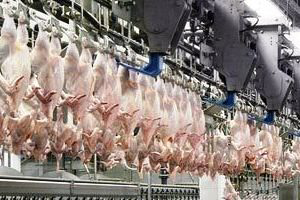Chicken prices set to rise after tariff increase

Increasing customs duties on imported chicken would result in chicken prices rising by between 30% and 50%, Association of Meat Importers and Exporters chief executive David Wolpert warned on Friday.
This view was supported by Pick n Pay, which said any significant increase in the tariff would have a direct and serious impact on the price of chicken.
Wolpert was responding to complaints by poultry producers that their margins were being hurt by a rise in imports and high feed input costs.
Pick n Pay director of food merchandise Peter Arnold said that although the retailer sourced the large majority of its poultry from local producers, the industry was unable to fully satisfy demand.
“The total quantity of imports represents approximately 12% of the total poultry sold in the industry,” he said.
He said any increase in import tariffs, as proposed by the SA Poultry Association, would have a serious impact on the price of chicken.
“Chicken is one of the primary sources of protein and it is important to remember that poultry products include all parts of the bird,” Arnold said.
Given that the retailer was concerned with food security at all levels, as well as providing its customers with the best possible prices, he said: “We are opposed to this tariff increase.”
However SA Poultry Association chief executive Kevin Lovell has said the influx of chicken imports was causing a “crisis” that might result in job losses if it was not curtailed.
Lovell told Business Report on Friday that the association wanted the government to balance the volume of imports and local poultry products.
He said the industry believed the price of chicken for consumers would only increase by 10% to 15% if the tariff was increased as chicken was the most popular animal protein and retailers would not increase the price by more.
But Wolpert maintained that should the government approve such a tariff increase, the costs would be passed directly to the consumers.
Two of the largest fast food chains, KFC and Famous Brands, said they also only used locally produced chicken.
Woolworths said more than 90% of its chicken was sourced locally. However, the retailer did use a small amount of imported chicken for certain recipes. “We are currently assessing the impact of the tariffs,” it said.
Recent interim and year-end results by major chicken producers Rainbow Chicken, Astral Foods, Sovereign Foods and Afgri showed that margins remained flat or declined.
Wolpert disagreed with the blame being placed on imports, saying the poultry companies’ recent financial reports showed numerous problems with their operating models which, if not addressed, “will necessitate large price increases”.
He said his association was sympathetic to some of the problems faced by the industry, such as high input costs.
“We keep on hearing about these imports but chicken imports have increased by about 32% over seven years, an average of 4.5% a year,” he said.
Wolpert said without the imports the local industry would not be able to satisfy demand.
Source: Independent Online













